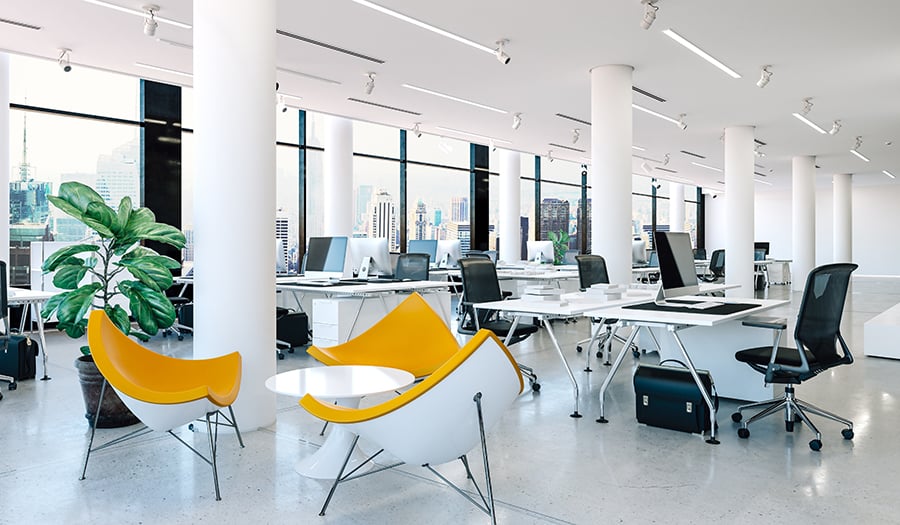
Guest blog by Emily Benjamin. Emily works for Biproxi, an end-to-end commercial real estate listing platform that connects buyers and sellers and is committed to providing the best tools, data, and applications to empower brokers to sell intelligently, and buyers to invest confidently.
Many business owners will face the dilemma of whether or they should purchase their next office space or whether to lease. We’re going to dig into specifics to help you make an informed decision on which might better suit your budget and business needs.
Overview
Choosing whether to purchase or lease your next office space is no easy task. Each option has unique benefits and challenges that can affect both your business and your bottom line. Each option should be carefully weighed. You need to ask yourself questions such as:
-
What kind of growth do you expect?
-
Where is the ideal location?
-
How is the economy doing?
-
How are local real estate prices compared to lease prices?
-
How long can you commit to a location?
-
How much space do you need?
The first step you should do before considering leasing or purchasing a property is to make a list of what is essential to your next space. You need to consider both the long-term and short-term when evaluating this decision.
Benefits of Leasing
Cost – There’s a lower barrier to entry and lower maintenance costs are attractive to many business owners.
Less Risk – Compared to purchasing a commercial property, you do not have to put any collateral up like you might have to when purchasing.
Flexibility – When leasing a property, you have a lot more flexibility in terms of up/downsizing, finding a better location, etc. Once the lease is up, you’re free to pursue finding a more suitable property.
Maintenance - Pending the lease agreement, generally you are not responsible for major maintenance items. If, for example, the roof needed to be replaced, the property owner is responsible for the repair.
Tax Benefits - You can deduct your lease payments and other rental expenses, which is also attractive to many business owners.
Shortcomings of Leasing
If a broker was used to locate the property you will have an annual brokerage fee to pay, which is usually a percentage of the annual lease amount.
Equity – You’re not adding equity with monthly payments like you would if you were to purchase the property.
No Fixed Payments – With leasing, you’re subject to lease increases every time your lease is up for renewal. So, your payments could increase, unlike if you were to have a monthly mortgage payment. Luckily, you can negotiate your lease and many landlords are willing to work with you.
You are also at the mercy of the landlord for making timely repairs. If the landlord is inattentive, it could negatively affect your business.
Finally, if you are frequently moving office locations, the disruption and associated moving expenses can take a toll on your business.
Benefits of Purchasing
Tax Benefits – You can deduct your mortgage interest payments on your taxes, depreciate your building, and more.
You accumulate equity with every payment. Additionally, you can use this equity as collateral for future financing needs which can benefit your business in many ways. It also keeps your personal property and money separate from the business, thereby reducing personal financial risk.
Commercial property values tend to appreciate over time much like residential property. Assuming the market is in good shape, the property can be sold for a profit. There’s also potential to rent out the property for a steady income or even rent out any extra space you might have. OF course this has its downsides, as you’ll need to learn to properly manage a the property.
Flexibility - You own the property and can modify it to suit your business needs without seeking approval from the owner.
Shortcomings of Purchasing
Repairs – As the property owner you will be held responsible for any repairs, maintenance, etc. on the building.
Cost - Large upfront costs are easily the biggest con of purchasing commercial real estate.
Flexibility – While there is a great amount of flexibility in what you can do with the property, sometimes your needs change and you may need to downsize or obtain a larger space. Because of this, owning property can be a hindrance as you may need to sell your current space. So, it’s essential to determine how much office space you need.
You also need to consider whether the investment in purchasing your own property will be worth it to your business. Your money could potentially be used in better ways to invest in your business. This is something that requires careful consideration and is different for each business.
Summary
Choosing which option is best for your business is no easy task and is different for every business. To help aid your decision, you should create a cost comparison between purchasing and leasing potential properties you’re considering. If you cannot find a property for lease that suits your needs, you may have to resort to purchasing or vice versa. Ultimately, it’s up to you to crunch the numbers and determine what your best option is.
Here are a few other articles we think you will like:
7 Things to Look Out for in Your Office Lease
Getting The Best Deal on Your Next Office Lease
3 Commercial Real Estate Technology Tools You Should Know
Subscribe to our blog for more CRE tips!!











